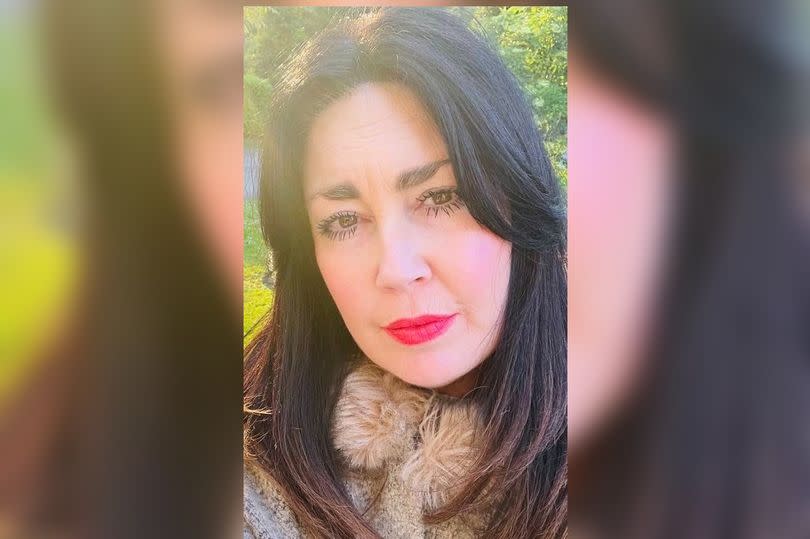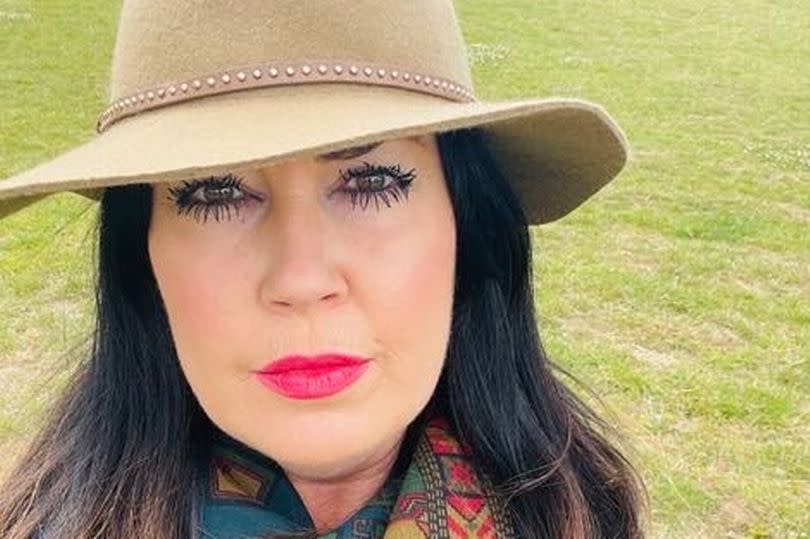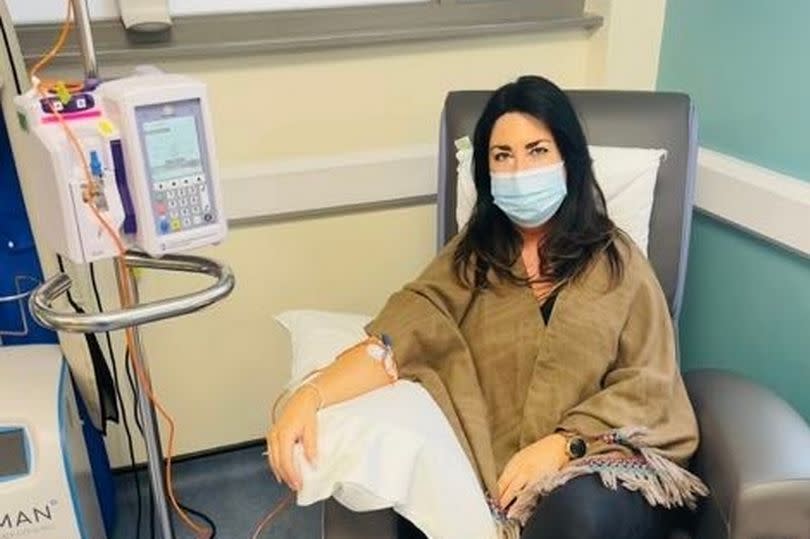Woman with 'itch' told she had 12 months to live

A woman who went to the doctors with an 'itchy' mole on her back was told she had 12 months to live.
Kirsty Ruddin, 46, first noticed something was wrong back in 2017 when a mole on her back had grown in size and started to itch. She was diagnosed with stage 2B Melanoma and had surgery to remove the mole straight away.
However, just before her five-year anniversary, when she was due to be discharged, she was told she had stage 4 Metastatic Melanoma that had spread to her lungs and left kidney.
READ MORE: Live updates as jury finds teacher Rebecca Joynes accused of having sex with two pupils guilty
READ MORE: Live updates as M58 closes after 'serious multi car crash'
Devastatingly she was given a prognosis of 12 months to live. Kirsty, from Wirral, grew up in the 80s and 90s when there was a lack of awareness surrounding skin damage and cancer.
Like many others at that time, she grew up with a sunbed in her home. She said: "We all used to use it. Having a healthy glow was deemed cool and it was common for most people to hire sunbeds for prolonged periods ahead of their holidays.
"'Tan marks' or 'sunburn marks' were often shown-off as trophies totally oblivious to the skin damage that was being caused."
Kirsty said a lack of awareness and the general culture in the 80s and 90s meant that people were blind to the dangers of sunbeds and the risk of deadly cancers they can cause.

Liverpool is a city where sunbed use is one of the highest in the country. It's estimated that there are over 200 sunbed shops throughout the region.
Like tanning in the sun, sunbed use comes with an array of health risks. According to Cancer Research UK, using a sunbed before the age of 35 can increase your risk of melanoma by 75 per cent. An estimated 100 people in the UK die every year from skin cancer caused by sunbed use.
Kirsty is urging people to avoid sunbeds, and is also keen to assist with the battle to reduce the cost of SPF's by removing the VAT and helping to ban sunbeds.
The 46-year-old added: "I would not wish for anyone to go through what I have experienced. This can be avoided by being sun-savvy and avoiding unnecessary UV exposure including that caused by sunbeds. Had I known this as a teenager I would have stuck to my fake tan and SPF 30+. A tan just isn't worth losing your life. It's as simple as that!"
Following two years of immunotherapy and a raft of life-changing side-effects, in November 2023, Kirsty received the news she was in remission.
She said: "I now have three-monthly scans and dread the day that it may return but I live for the moment and hope I can be one of the lucky few that survive this deadly disease. I don't want my battle to be in vain. If I can help just one other person avoid this gruelling experience and stay melanoma-free then it's been worth-while."

Despite the vast research showing the dangers of UV radiation caused by sunbeds, Melanoma Focus has found that just under half of 18-25 year-olds are currently using sunbeds, the highest of any age group, despite being aware of skin cancer risks.
Research by Cancer Research UK shows young women are 'more than twice as likely' to be diagnosed with melanoma than young men.
Susanna Daniels, CEO of Melanoma Focus, said: "The proliferation of sunbed use across the UK is alarmingly high and it's shocking that so many people don't realise how dangerous they are.
"Melanoma skin cancer rates are rising in the UK and it's an increasingly serious health concern. We strongly advise against using sunbeds in order to protect your skin and reduce your chances of being diagnosed with melanoma or other skin cancers."
According to Cancer Research UK, Melanoma, the most serious kind of skin cancer, is becoming more common in the UK with around 16,700 new cases every year - 46 every day.
The good news is that 9 in 10 cases of melanoma are preventable. Avoiding sunbeds, using SPF, covering up in the sun and regularly checking your skin for any changes could protect you from skin cancer.
Don't miss the biggest and breaking stories by signing up to the Echo Daily newsletter here

 Yahoo News
Yahoo News 
